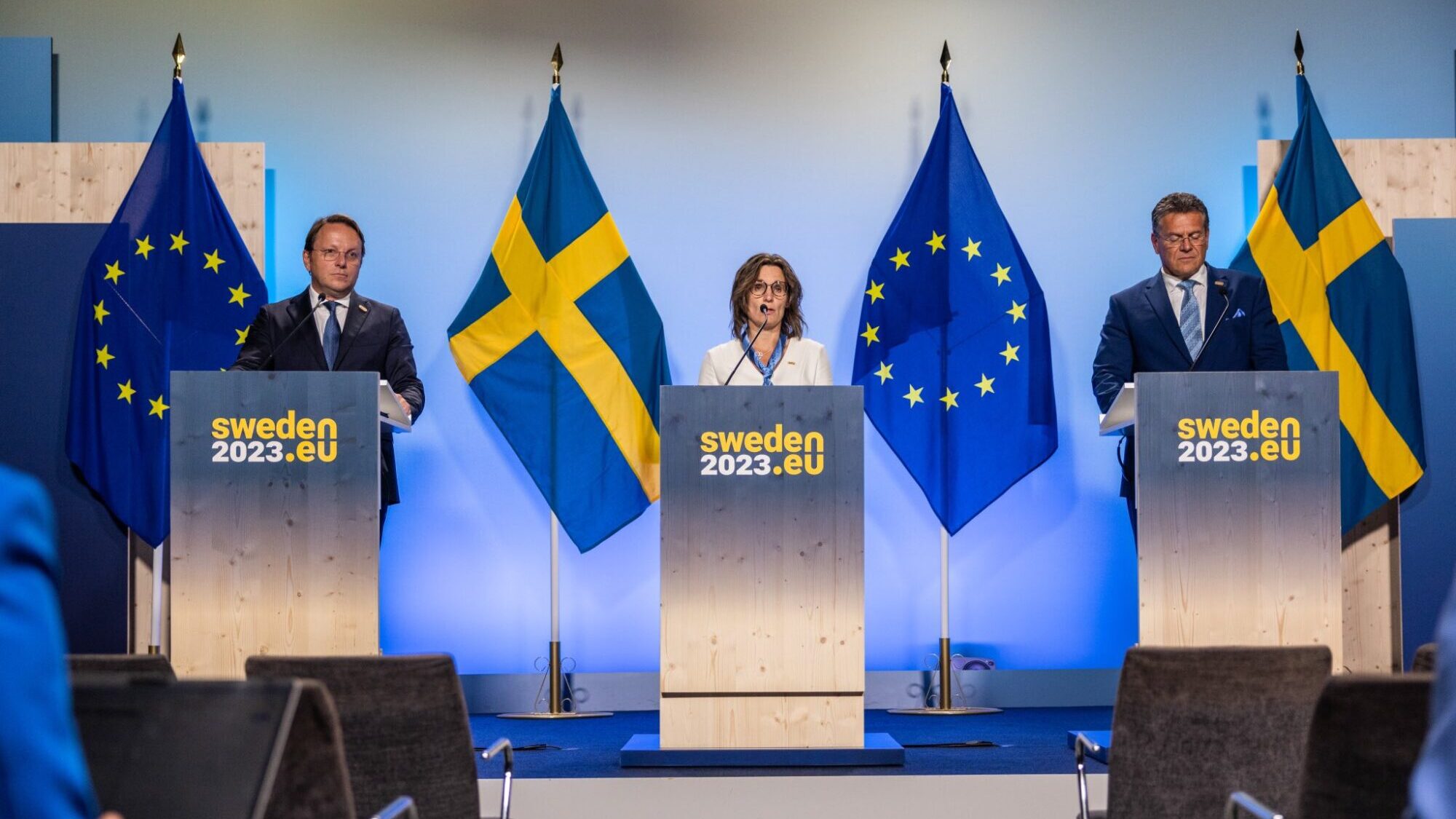
Ukraine has a long way to go before it can begin the EU accession process, according to a progress report presented to member states by Enlargement Commissioner Olivér Várhelyi at an informal Council meeting organized by the Swedish presidency on Thursday, June 22nd.
According to the commissioner, Ukraine has made relevant progress in multiple areas, but only two out of the seven criteria—linked to democracy and the rule of law—have been completely fulfilled so far. Corruption, money laundering, and the lack of fundamental rights for national minorities remain the issues that need the most urgent action.
As we wrote before, EU ambassadors have been the first to be briefed on the progress of Ukraine, Moldova, and Georgia on Wednesday, June 21, behind closed doors. Várhelyi then traveled to Stockholm to discuss the report with the European Council as well, after which he presented his findings at a press conference.
Today at the Informal meeting of the General Affairs Council I gave an Oral Update on Ukraine 🇺🇦, Moldova 🇲🇩, Georgia 🇬🇪 .
— Oliver Varhelyi (@OliverVarhelyi) June 22, 2023
I informed the Council about how the 3 countries are progressing & the remaining work still to be done.#GAC #EU2023SE pic.twitter.com/WWSRUM8k5y
Of the seven areas that Kyiv is expected to overhaul systemically, the European Commission has found so far that only the judicial reforms and the media laws are sufficiently in line with European standards, and thus officially considered as fulfilled.
Among the other five areas, the level of progress varies. In the report, Várhelyi notes that Ukraine has made good progress (meaning that core legislation has been passed and more than half of the task has been delivered) on the Constitutional Court reform, which is needed to protect the independence and fair appointment of judges.
In the remaining four areas—anti-corruption, anti-money laundering, deoligarchization, and national minorities—Ukraine has only made some progress, meaning that important measures are still pending and the overall progress is less than 50%.
Várhelyi also provided concrete examples of legislation that Ukraine still has to adopt or implement. The document explains in detail what is still lacking in all five cases, yet the one in which it has the most to say concerns national minority rights—or the lack thereof.
“Ukraine needs to address the recommendations of the Venice Commission … on the law on minorities, in particular on the use of minority languages in public life, administration, media, and books,” the Commissioner stressed.
As the report explains, the Venice Commission—an advisory body on constitutional law that oversees the implementation of human rights in all Council of Europe (CoE) member states—has, for the past six years, called for Kyiv to repeal or amend two laws in particular. This, after ruling that they violate the fundamental rights of national minorities.
The laws in question are the infamous Ukrainian educational law (2017) and language law (2019), through which Kyiv was aiming to forcibly erase the cultural identity of over ten million Russian-speaking citizens by restricting the use of minority languages in nearly all areas of public life.
While this would have been a problem in itself, it was made worse by the fact that Russians are not the only national minority group in Ukraine. Five EU countries—Poland, Hungary, Romania, Bulgaria, and Greece—all have sizable diasporas living in Ukraine, most numbering above a hundred thousand people, with a dozen other, smaller national groups scattered throughout the country.
Although the Venice Commission’s ruling was amplified by multiple calls from the CoE, the EU, the UN, and countless governments, Kyiv has done almost nothing to restore the language rights of minorities in the six years leading up to the war.
In the report, Várhelyi took note that a first step had been taken by postponing the implementation of the education law by a year. However, he urged Kyiv to start taking concrete steps as well. According to Várhelyi, now is the time for
Ukraine to reconsider the minority school system in the light also of previous Venice Commission recommendations to ensure equal opportunities for people belonging to national minorities, avoiding a disproportionate interference in their rights.
The message, therefore, is clear. If Ukraine wants to belong to the European Union, it should stop persecuting the people of EU countries.
